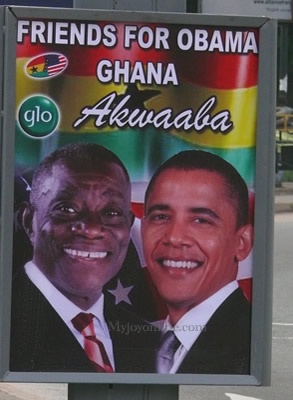
The United States hopes President Barack Obama's decision to visit Ghana this month will spur other African governments to try and emulate the West African country's democratic record.
Ghana won independence from colonial rule in 1957. A bloody chapter of military coups followed, but since Jerry Rawlings introduced multi-party democracy in the 1990s, opposition parties have twice won power through successful elections.
"(Obama) believes strongly in the rule of law, democratic constitutional rule and the principles that underpin it," U.S. Assistant Secretary of State for African Affairs Johnnie Carson told reporters during a visit to Kenya.
"We hope that his support for democracy in Ghana will be a catalyst for others to also adopt democratic norms that are equally as strong," he said when asked if Obama was sending a message to Kenya by choosing the West African country.
Obama's Ghana visit has triggered a bout of angst in Kenya, his ancestral homeland, and Nigeria, Africa's most populous nation and a major supplier of oil to the United States.
Nigeria has an appalling record of organizing transparent polls and ethnic violence after a disputed election in Kenya in 2007 killed at least 1,300 people and shattered its image as the region's stable economic powerhouse.
Opposition candidate Raila Odinga said the election was stolen from him by incumbent President Mwai Kibaki. Former U.N. Secretary-General Kofi Annan eventually persuaded the two rivals to form a coalition government.
However, the fragile union has so far failed to implement promised political reforms and many Kenyans are disillusioned by government squabbling and allegations of rampant corruption.
"Not only have we seen a succession of successful elections in Ghana, we have twice seen the opposition party defeat the ruling party and take over in successful elections," said Carson, when asked why Obama was not coming to Kenya.
"This is meant to demonstrate the support that the United States has toward democratic governance in Africa, support for rule of law," said the former U.S. envoy to Kenya.
Carson said during a visit to Kenya in May that Washington was "deeply concerned" about growing political tensions in east Africa's biggest economy and that they must not turn into political violence.